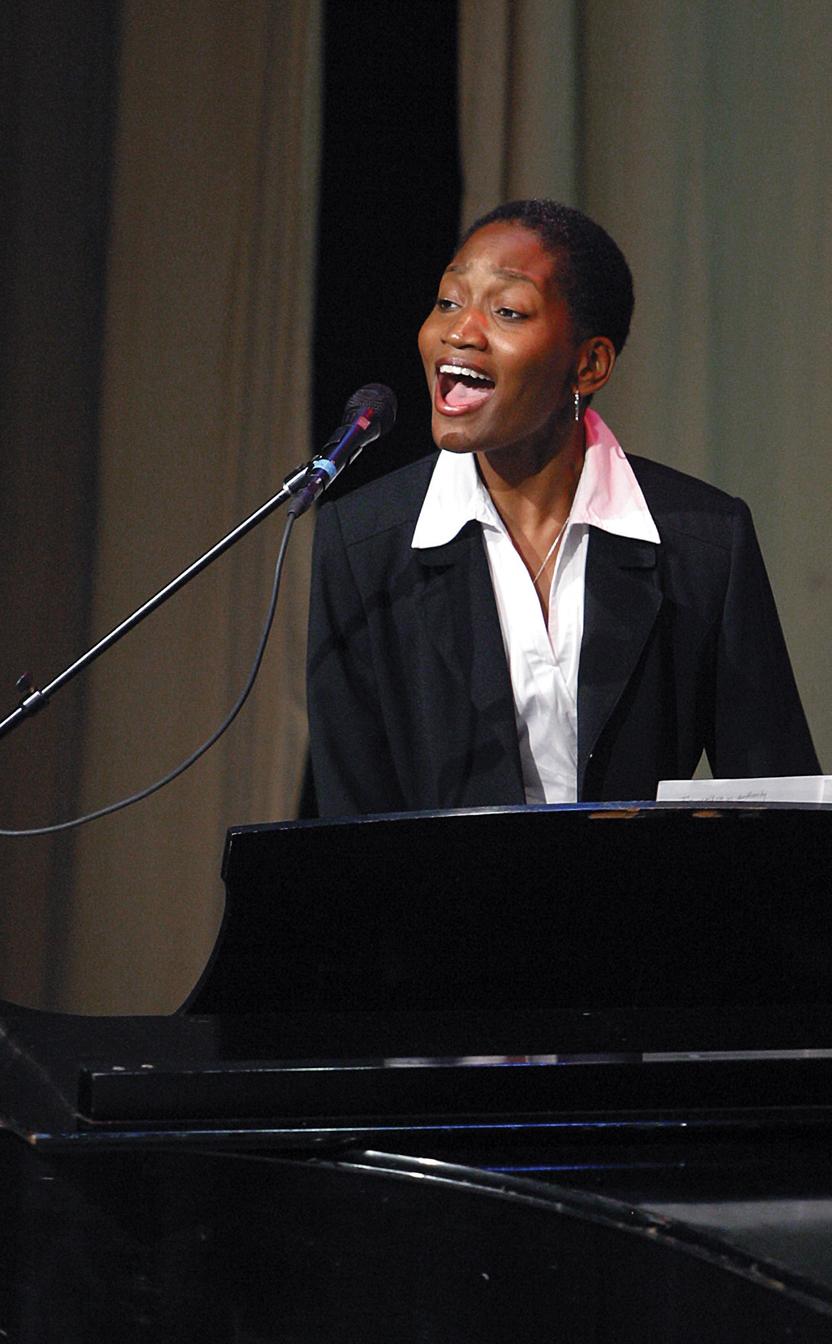
RIDGECREST, N.C. (BP)–When she was a missionary in Nairobi, Chiffon Chambers cringed every time an African would ask — all too frequently — why most missionaries are white. Chambers is black.
The perception is one that Chambers and a growing number of mission-minded women across the United States hope to change.
At this fall’s second annual “Sisters Who Care” conference at LifeWay’s Ridgecrest Conference Center in North Carolina’s Blue Ridge Mountains, nearly 300 African American women from 21 states celebrated their “sisterhood” — both in Christ and in their ethnic heritage.
Sister to sister, they could joke and speak frankly about the challenges of being black women — and the strengths they have gained by enduring such challenges.
The women arrived from states as distant as Alaska for three days of fellowship, laughter, study, worship, prayer and inspirational music.
Conference attendees learned of a forgotten missionary tradition that is theirs to reclaim. Chambers, who worked in Africa for three years as an International Mission Board videographer, informed the vocally responsive crowd they are suffering from a mistakenly whitewashed impression.
The very first American missionary, she pointed out, was a black man in 1782.
“My point is that Satan is trying to convince us it is a white man’s ministry, and we buy into that,” Chambers said.
The Great Commission is a call to all people, not just those of European descent, she contended to roaring applause.
“There is a long list of African Americans — freed slaves, as if they didn’t have enough on their plate — who still felt the need to tell others,” Chambers said.
In addition to Chambers, seminary professor Carolyn Gordon addressed the conference with a challenging message, repeating several times slowly, “We have spent our resources on things in our lives that do not satisfy us.”
Gordon paused, shook her head and, with her trademark wit, cracked, “I’m amazed at the number of Coach-carrying, Prada-wearing, weave-wearing sisters who are just broke.”
Then, in a serious moment, she passionately whispered to a hushed auditorium, “We waste our resources because we do not yet understand who we are in God.”
“Sisters Who Care: Women on Mission” was the brainchild of Debra Berry, a national ministry consultant for the Woman’s Missionary Union who was perplexed at the limited involvement of blacks in WMU’s Women on Mission programs. She coined the phrase four years ago, hoping to make a culturally relevant connection with fellow African American women.
Historical research showed Berry that many black Baptist churches have the word “missionary” in their names because they were in the forefront of post-Civil War missions until the 1930s.
What brought blacks back from the mission field and shifted their attention inward to the local church was a simultaneous loss of backing from predominantly white supporting agencies and the colonial governments of Africa.
The Sept. 24-26 “Sisters Who Care” conference paid tribute to historical black role models of bygone eras such as Nannie Helen Burroughs, who organized her fellow black women into missions at the turn of the 20th century.
“People of color aren’t really exposed to that [example],” said Kenyatta Garner, who came with a group of 55 women from Spring Hill Missionary Baptist Church in Detroit. She said her church only recently started participating in international missions.
The most empowering message she took from the conference, Garner said, was learning that other people share similar struggles, such as being unsure of God’s plan and direction.
“God is doing something amongst the African American women in this country!” exclaimed Trenise Lowe, associate WMU director in the Detroit area, to which the crowd responded with a resounding, “Amen!”
One of the obstacles to motivated women is a cultural pressure to keep secrets, said Gordon, associate professor for church and community at Central Baptist Seminary in Kansas City, Kan.
“We have a lot of secrets in our lives, sisters,” Gordon told a group gathered for Bible study. “Too many of us sisters are still sabotaging our lives because we haven’t reconciled what has happened to us in our past. Christ is our heritage and has canceled out the past. We need to start telling our story.”
Liz Bridges, a WMU leader from College Park, Ga., knows something about the temptation to keep secrets. As a pastor’s wife, she was both heartbroken and mortified about what people might think when she learned that her unmarried daughter had an abortion while away at college.
Her daughter had carried twins. Later, the daughter gave birth to a healthy baby girl. Four years later, as Bridges’ daughter was getting her life on track, she died of a blood clot caused by a fall at home. Bridges has since raised her grandchild, now 13, the product of an unbearable tragedy and yet a resounding triumph and blessing.
Sisters Who Care heard strong encouragement to take their stories of faith and life in Jesus Christ to lost souls who need the Savior.
“Billions of people have never heard of Jesus Christ,” Chambers said. “In the [African] bush, they are worshiping rocks or doing bull sacrifice. My heart just grieves for them because God put in them a nature to worship Him, and they don’t know it.”
–30–















